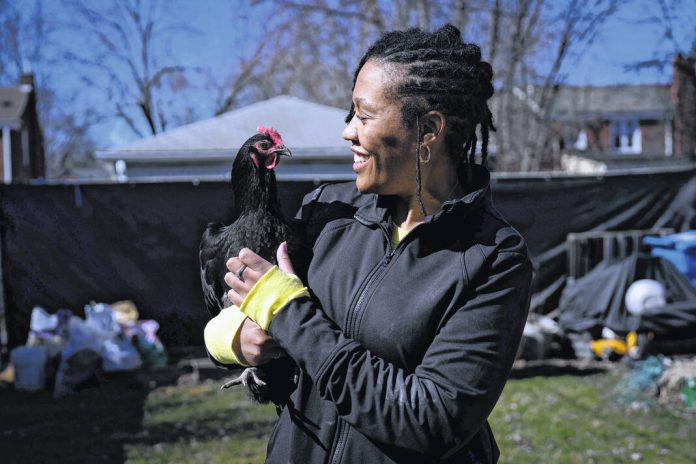CHICAGO — Shaunté Brewer didn’t know that her health was in danger at age 13. As the Chicago resident recalls, she was more focused on passing her softball test in gym than on her prevalent cough. Fortunately, Brewer’s mother determined that the sound and persistence of her daughter’s cough called for a trip to the hospital.
“The way she described the cough was a mix of a smoker’s cough. Imagine a 13-year-old girl with a super deep cough,” said Brewer, now 36. “I just knew my mother was waking me up for nothing at all. I never made that softball test. As soon as we went into the emergency room, I knew triage was going to look at everything and say you can go home with a cold.”
But when she was shown her X-ray, her heart was on both sides of her chest. Brewer said her heart was swollen to the point where it was struggling to beat.
“Thank God for my mother,” Brewer said.
She remembers how her mouth-breathing while running led physicians to the root of the problem. She had myocarditis, inflammation of the heart muscle. Dr. William Cotts — Brewer’s cardiologist and medical director of advanced heart failure and heart transplantation at Advocate Christ Medical Center in Oak Lawn — said Brewer’s condition was caused by a virus. Her body likely attacked her heart when it was attacking the virus.
“Oftentimes it’s self-limited, it gets better, people’s hearts get back to normal, they’re fine,” he said. “And in some patients, their hearts worsen over time.”
Brewer was put on medication and maintained her health, living her life to the best of her ability — traveling, becoming an educator and signing up to be an organ donor at age 19, not knowing that she was going to be on the other side of the process one day.
When coming back from a trip to South Africa with layover in Amsterdam, Brewer contracted COVID-19. And while she and her heart made it through that, Brewer said she felt different afterward. She didn’t have the energy to do anything from that point on. She lost a bunch of weight and couldn’t keep food down. Again, she went to the hospital, thinking it was a stomach bug.
“Lo and behold I found out that was my heart saying, ‘I fought the good fight, and it’s time to retire,’” Brewer said. She went into Christ Medical Center and less than a week later, on Feb. 12, 2023, she had a new heart. She remained in the hospital for six weeks.
Brewer celebrated the first anniversary of her heart transplant during February, which is American Heart Month, with a trip to Wisconsin Dells and celebrations with friends and family. She was used to living with decreased heart function for the majority of her life, and had come to terms with the fact that she may not make it to her 80s or 90s, like her family members.
“Now that I have the transplant, I feel like I’m going to be here until I’m 90. I can be here with the rest of my family,” she said. Brewer is all about sharing her experience as a transplant recipient with the world, including her elementary students.
As founder and executive director of Vision Outreach, an initiative that brings her into classrooms to teach STEAM (science, technology, engineering, art and math), urban agriculture and social-emotional learning, she’s been discussing the science behind her health condition since she founded the organization in 2012. She currently teaches elementary school kids at Cambridge Classical Academy in the Grand Boulevard neighborhood.
Brewer said she’s taken in calf hearts and lungs from butchers so students can perform fake surgeries. When students ask about her surgery scar or see the 36-year-old using a cane, Brewer turns the questions into teachable moments on science, biology and healthy lifestyles. She aims to impart knowledge as well as wisdom, which will in turn branch out and change the outlook of Black communities to make people healthier and happier.
“I talk to them about their diet and nutrition,” she said. “I already was a very tech-savvy person. Now I’ve included science as it pertains to health as well as space. The students that have seen me in the past two years saw me coming into the school with a PICC (peripherally inserted central catheter) line. So they literally saw the progression of my health and I told them to remember: Did you guys ever hear me speak anything but positivity about my particular situation? I always keep a positive mindset.”







